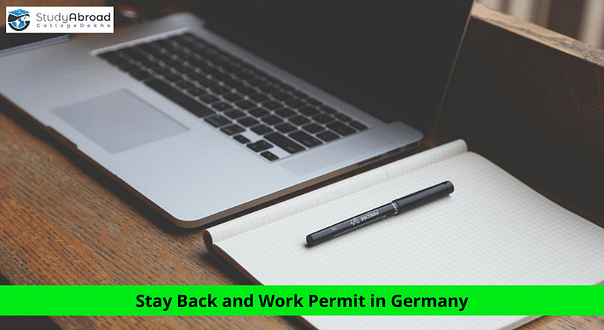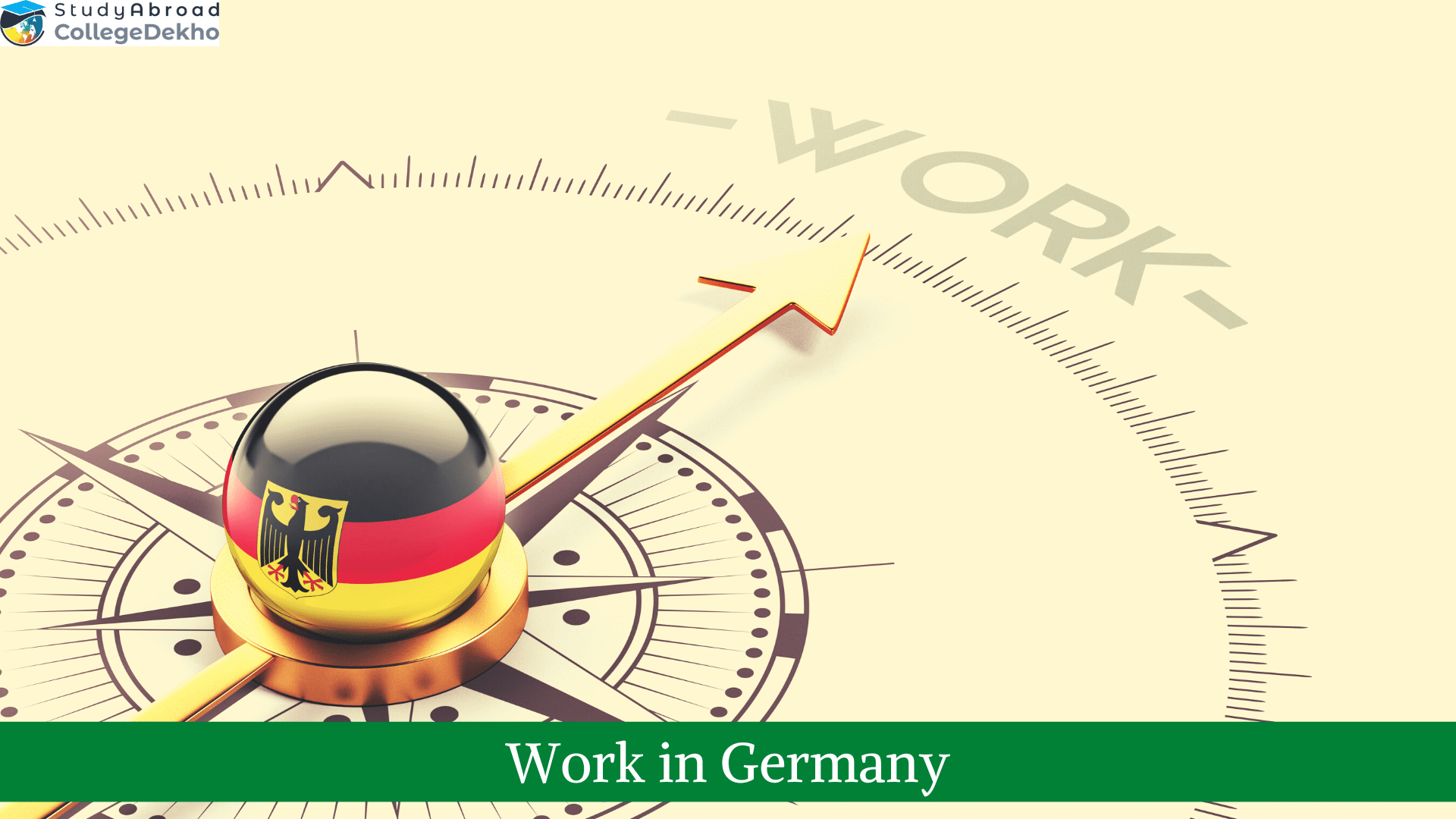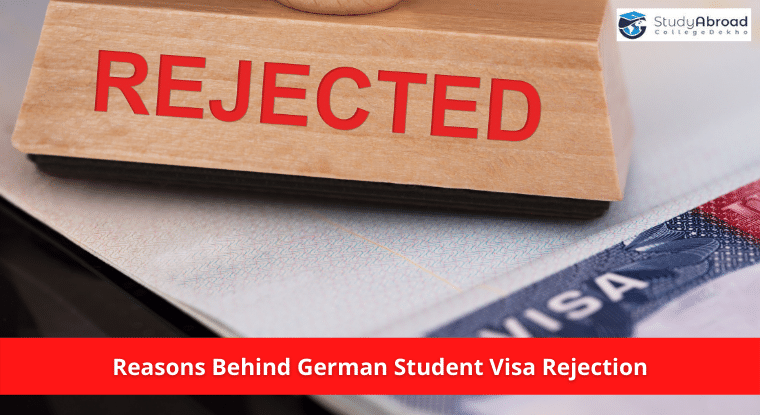Among the top reasons for studying abroad is to settle down abroad, especially in Germany which is known for being one of the largest economies in the world, which in turn means there are numerous job opportunities available. As is the case with most countries, Germany has been in search of highly skilled and qualified workers and professionals, establishing ironclad processes and opportunities that are difficult to ignore.
As studying abroad becomes an ever more popular option among Indian students, Germany has caught the attention of thousands of students through its world-class quality of education, variety of courses and programmes across different levels and tuition-free education in public universities.
In this article, we shall discuss the opportunities available and processes involved in staying back in Germany for the purposes of finding permanent employment.
Stay Back and Work in Germany After Graduation
As stated above, the federal government of Germany has established several policies for international students graduating from German universities, to stay back and not only find work but work while finding a suitable job for themselves. Understanding the socio-economic contributions of international students, the countrys federal policies allows students from both EU and Non-EU/EEA countries to work in Germany.
Non-EU/EEA Work Permit Regulations in Germany
According to the German regulations, all international students will be able to seek out work opportunities after studying in Germany, once they have applied for the residence permit extension. Once submitted, international student graduates will receive 18 months to find employment.
The regulations further stipulate that the 18 months will begin right after you have completed your final examinations at a German university. Additionally, students must find work opportunities relevant to their field of study. However, provisions within the regulations allow non-EU/EEA graduates to find work opportunities in any field in a bid to financially sustain themselves during their search for the appropriate job role.
If you are interested in staying back and working in Germany, as stated above, you will be required to apply for a residence permit extension. Similar to the document checklist for a German Student Visa, applicants must gather certain documents for residence permit extension in Germany, as outlined below:
-
Applicants ID or Passport.
-
Proof of graduating from any one of the German higher education institutions/universities.
-
Proof of valid Health Insurance
-
Proof of appropriate financial resources to support you after graduation.
Note: While you are required to provide proof of financial resources, German regulations allow you to take up temporary employment to support yourself while you search for relevant job opportunities financially.
Find Courses with the Best Job Options in Germany!
When Should I Apply for Post Study Work Permit in Germany?
As noted above, the 18 months of validity for post study work permit in Germany, or more accurately, residence permit extension, starts right after you complete your final examinations at the German university, in which you have been enrolled. Therefore, it is advisable that you apply for the residence permit extension in Germany while you are still completing your course, i.e. before the German student visa permit reaches its expiry date. Experts suggest that beginning your application process 6 weeks before your German student visa is due for expiration.
What after Getting Permanent Jobs in Germany?
While your residence permit extension allows you to stay back in Germany and look for relevant job opportunities, it will only allow you to stay back for 18 months only. Therefore, it is advisable to apply for the EU Blue Card, issued specifically to non-EU/EEA graduates from German universities who wish to stay back and work in Germany.
As is the case for any visa application, interested candidates will be required to satisfy the minimum application requirements for EU Blue Card in Germany. Some of these requirements have been specified below:
-
A German degree or a German-recognised degree: Applicant must present proof of either a degree obtained from a German university or have a degree recognised by Germany.
-
An appropriate job offer from a German employer: Once you have received a genuine job offer from a German employer, you will be required to submit a work contract along with your EU Blue Card application. This contract should mention your job role/position as well as the salary you will receive for the role.
-
It should be noted that being self-employed will not be counted when you apply for the EU Blue Card in Germany.
-
-
Your Salary is 1.5 times the National Salary Average: A key requirement for the EU Blue Card is that you are employed in a position offering you a salary that is 1.5x of the national salary average in Germany. According to 2022 statistics, EU Blue Card applicants must be earning a minimum gross salary (before tax) of EUR 56,400.
-
However, if you are employed in any one of the professions that are facing shortages such as Engineering, Medicine, IT Architecture, Science, etc will still be eligible for the EU Blue Card if you earn a minimum of EUR 44,304 per year.
-
Note: It is better to connect with professionals who can help you with this matter if you are unsure of your eligibility for the EU Blue Card.
Germany EU Blue Card Application Process
If you are sure that you meet the requirements for the permanent residence visa, you can complete the application process for the EU Blue Card in Germany, as defined below:
-
Connect with your local German Foreigners Authority and set up a visa appointment.
-
Collect and compile the necessary documentation.
-
Submit the application form with the collected documents and pay the EU Blue Card application fee.
-
Await a response from the German Foreigners Authority.
Note: If you are interested in applying for the EU Blue Card, it is advisable to connect with experts.
Stay Back and Work in Germany - Things to Keep in Mind
As defined above, once you have completed your studies at a German university, your student visa will expire. Therefore, if you are interested in staying back in Germany and seeking work opportunities after graduation, you must possess a valid residence permit extension that will allow you to stay back for 18 months in Germany.
Therefore, here are some things you must keep in mind if you plan to stay back and work in Germany.
-
Apply for the German residence permit extension at least 6 weeks before your German student visa expires.
-
While studying in Germany, try and learn to communicate in German. Your proficiency in German will only be beneficial for you, in terms of finding job opportunities.
-
As listed above, if you have graduated from fields such as Engineering, IT, Medicine, Architecture, Science, etc, your chances of finding a job in Germany, and subsequently an EU Blue Card.
-
Your EU Blue card will be viable for the duration of your work contract, however, the maximum validity period for an EU Card is 4 years, which can either be extended or you can apply for a new one with a new job contract.
-
The German student visa allows non-EU/EEA students to find part-time jobs while studying in the country. Therefore, take this opportunity to gain valuable experience which will further help you get a job quicker after graduation.
In short, if you are planning to study and work in Germany, as a non-EU/EEA student, you have basic rights to do so. However, these rights are offered with restrictions and regulations for staying back and working in Germany.
Register here and connect with highly experienced study abroad counsellors who can help you enrol in your dream course and university abroad.
Get Expert Guidance To Study and Work in Germany!

























